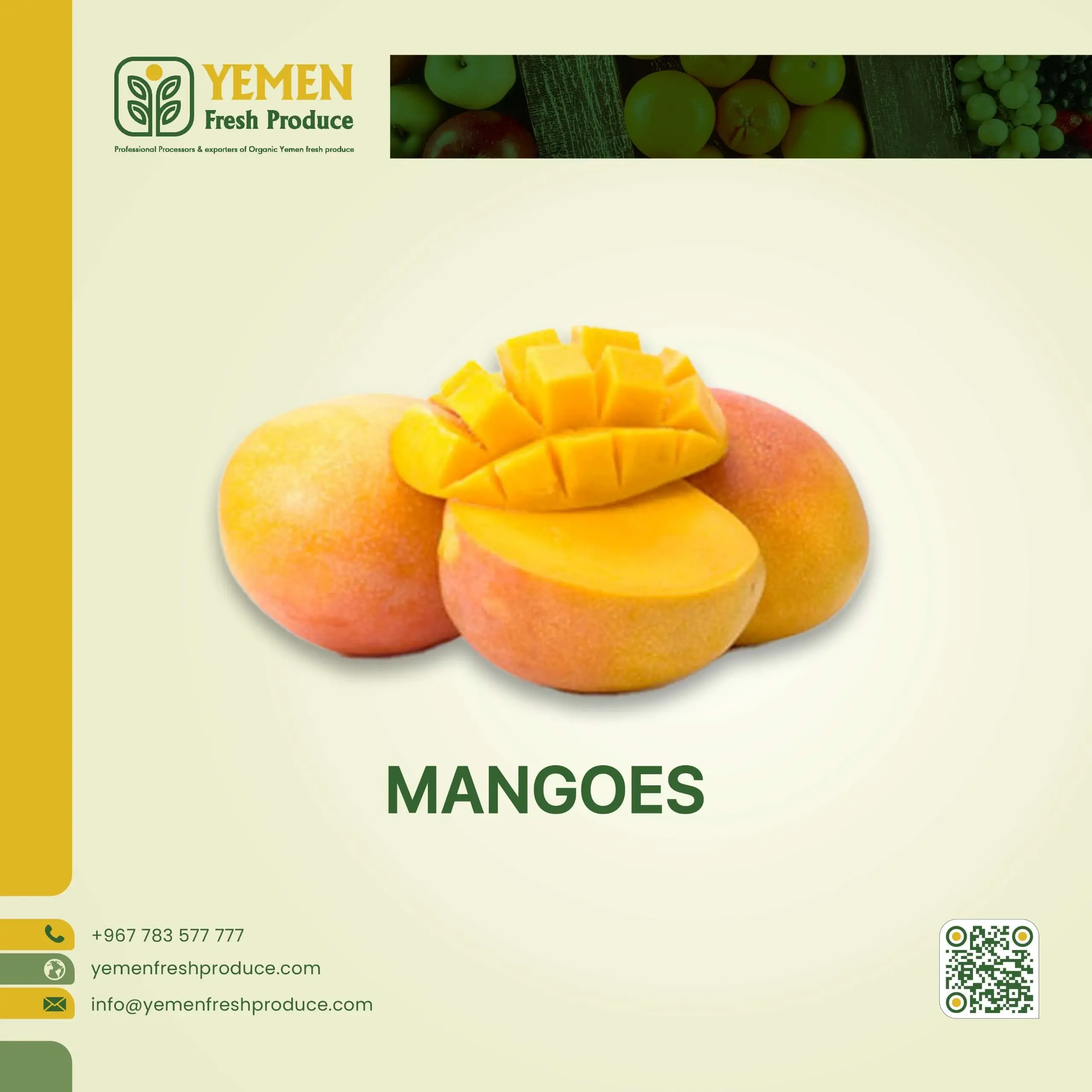
























Our Products
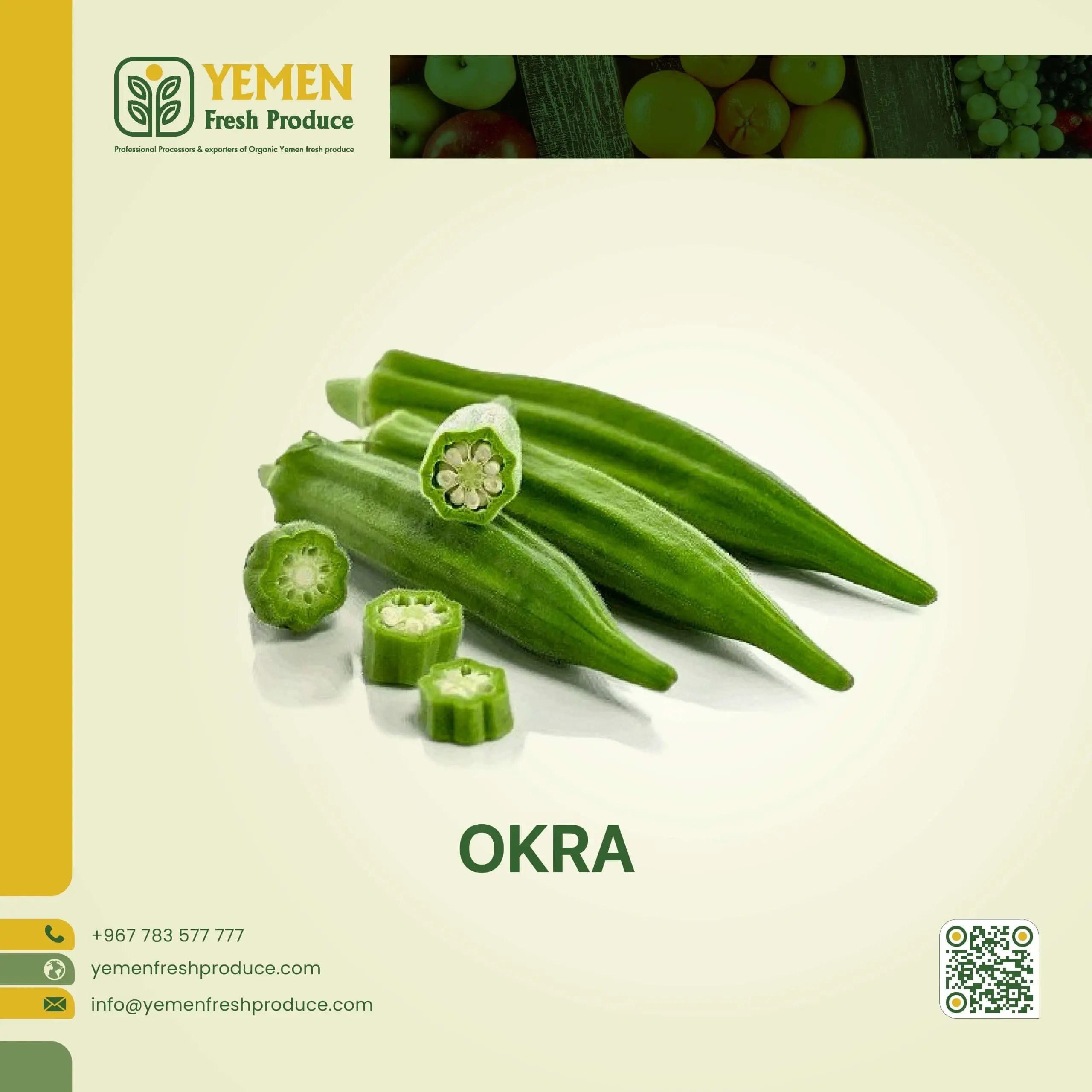
Okra
Yemen's fertile soil and suitable climate for organic farming make it an ideal place for growing okra, one of the most delicious and nutritious vegetables. It is cultivated in many regions of Yemen and is used in various dishes worldwide, including traditional Yemeni cuisine, appealing to diverse tastes across the globe.
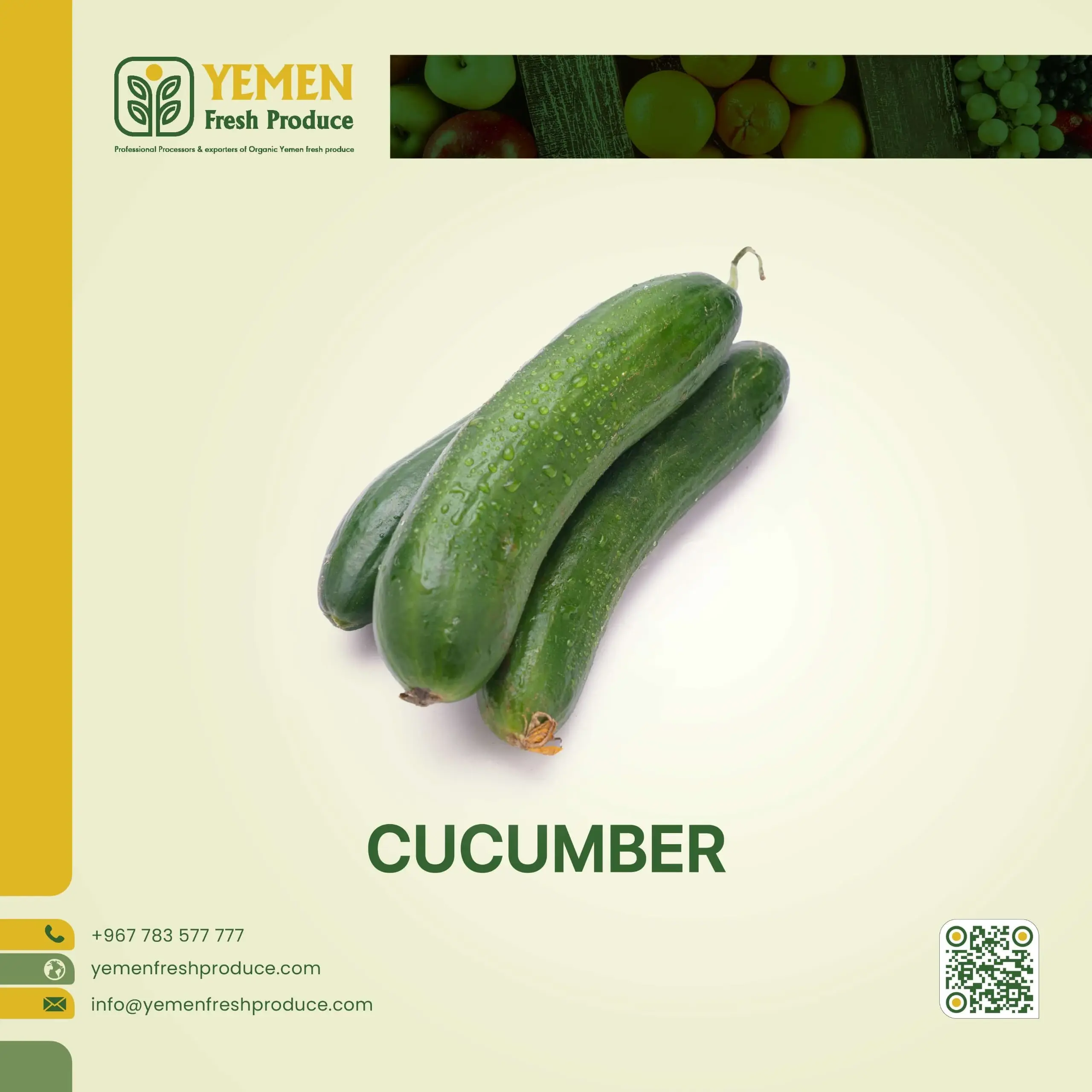
Cucumber
Cucumber is one of the oldest cultivated vegetables, originating from India. It is considered one of the healthiest foods due to its low calorie and fat content, while being rich in various minerals and vitamins, making it a nutritious choice for consumption.
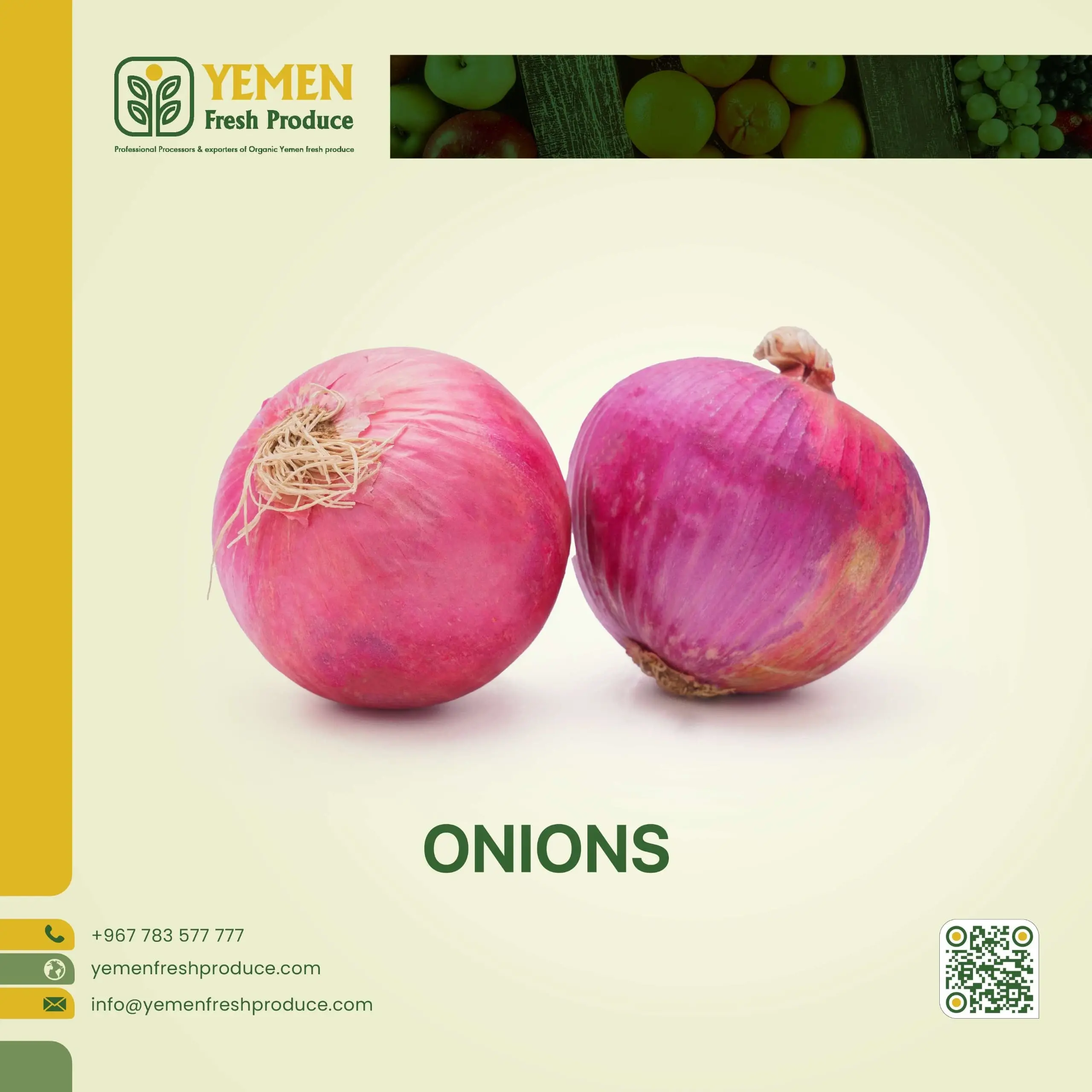
Onions
Onions are among the oldest known agricultural crops, and Yemen is classified as one of the most important Arab countries for onion production, thanks to its mineral-rich soil and suitable climate. Red onions are known for their strong flavor and attractive color, making them a favorite for many. In Yemen, modern farming techniques and organic fertilizers are utilized in onion cultivation.
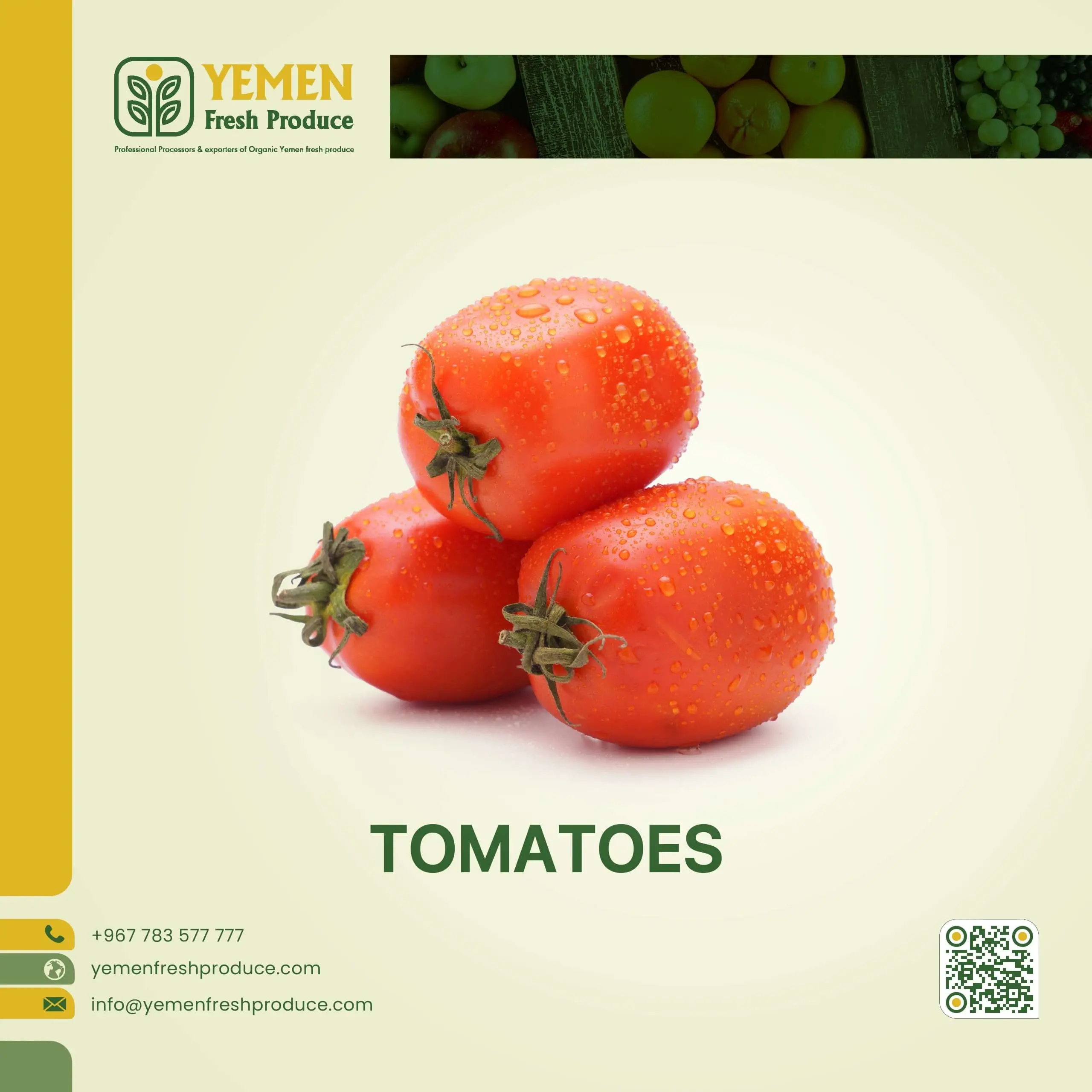
Tomatoe
Tomatoes are among the most prominent agricultural crops in Yemen, grown in various regions and considered an essential part of traditional Yemeni cuisine. Yemeni tomatoes are known for their high quality and unique flavor, reflecting the country's diverse soils and climate.
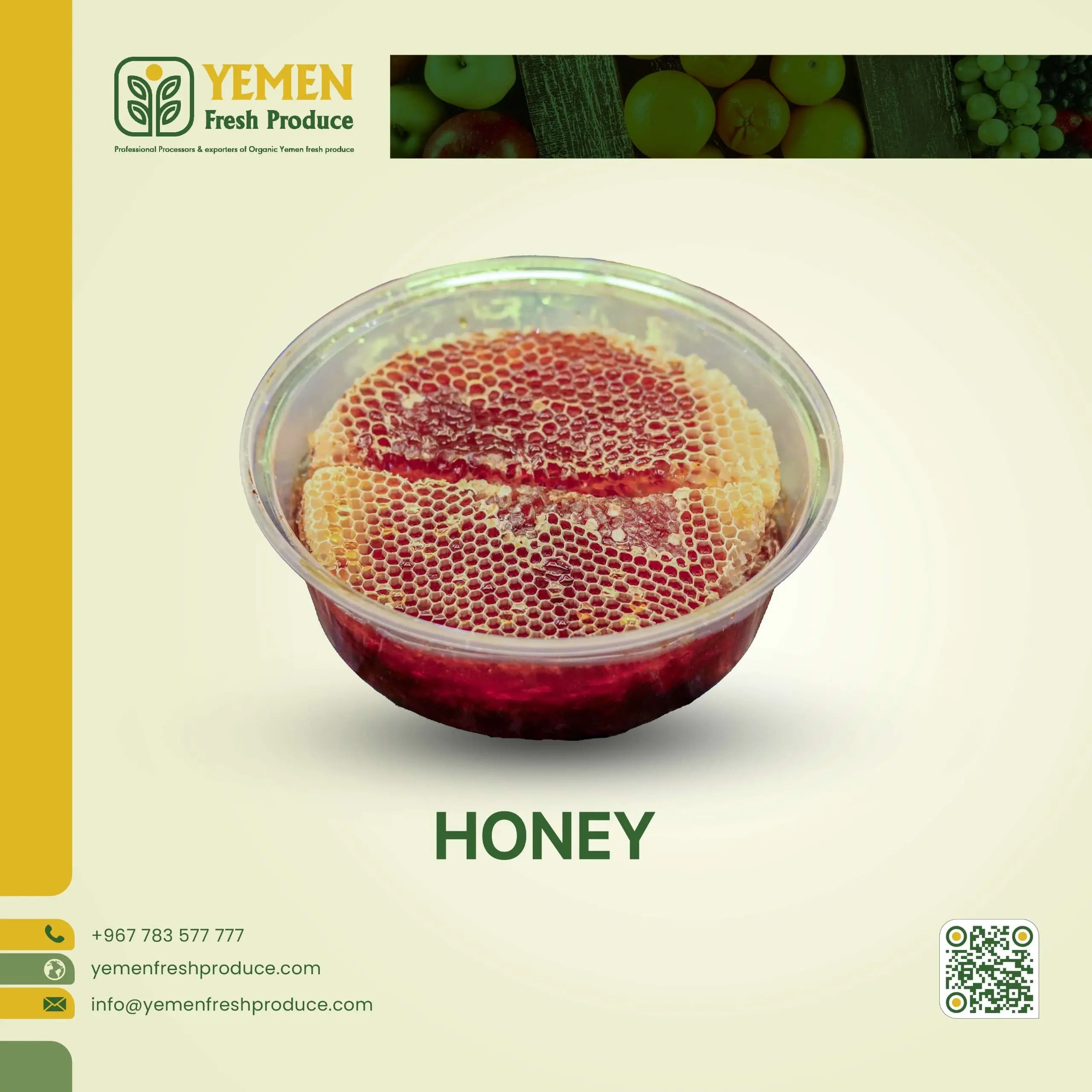
Honey
Since ancient times, Yemeni honey has been intertwined with the flourishing of civilizations, leaving an indelible mark in history. Beekeeping and honey production have received significant attention in Yemen, with honey harvesting seasons remaining unchanged for centuries.
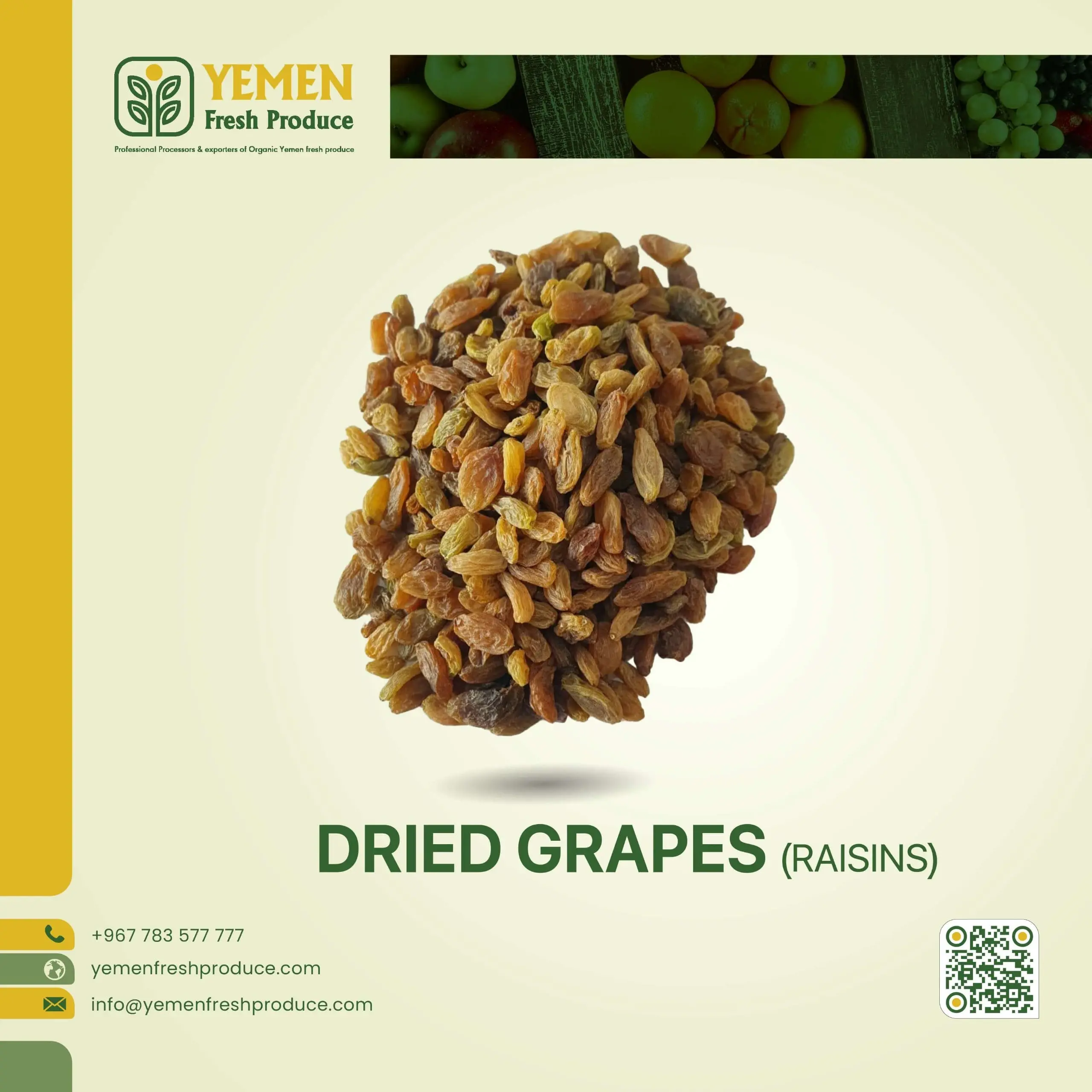
grape Dried (Raisins)
Yemen is considered one of the best regions for grape cultivation, thanks to its warm and dry climate. Grapes are harvested and traditionally sun-dried to create sweet and delicious raisins. Yemeni raisins are known for their large size and unique flavor, making them an integral part of Yemen's agricultural heritage and culture. They are classified as one of the highest-quality products in both Arab and global markets due to their nutritional value.
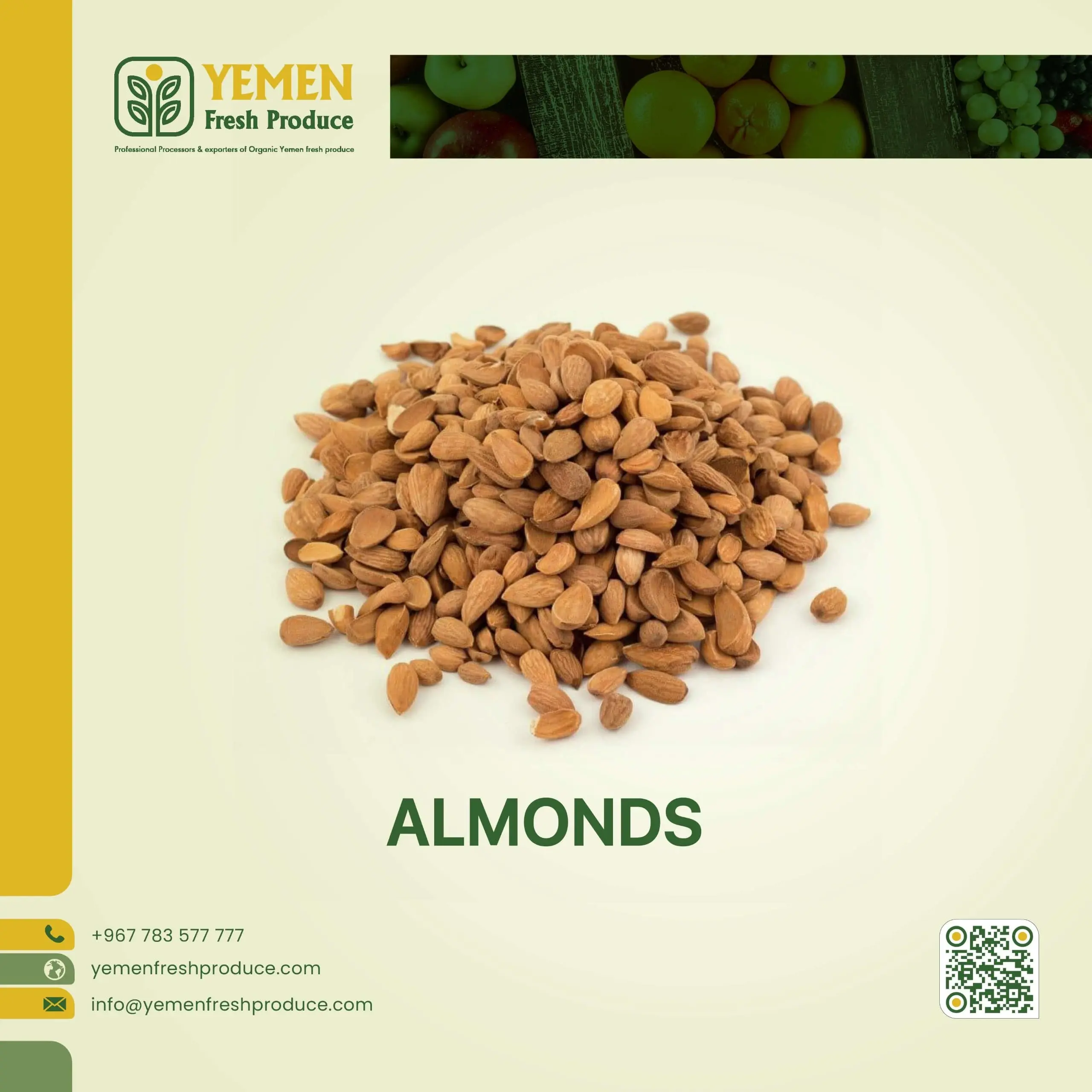
Almonds
Yemeni almonds are globally recognized for their exceptional quality, characterized by their small size and delicious taste. They are nutritionally richer than other varieties and enjoy widespread popularity both locally and internationally. Notably, Yemeni almonds have been cultivated for centuries in mountain peaks that reach elevations of up to 3,000 meters.
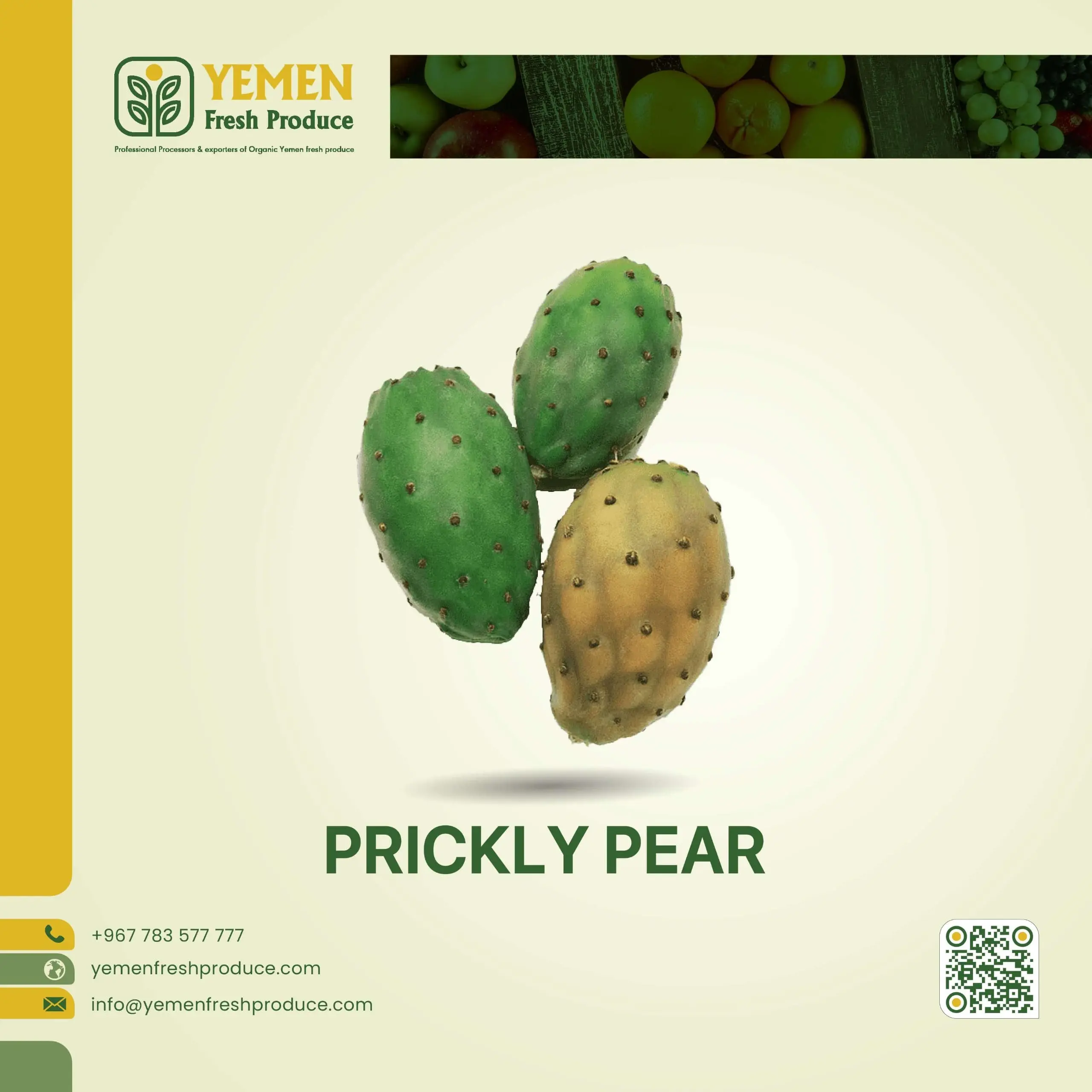
Prickly Pear
Prickly pear is an agriculturally significant crop that contributes to increasing farmers' income. It plays a vital role in supporting livestock grazing by providing high-nutritional-value fodder. Yemeni prickly pears are uniquely grown naturally, thriving without human intervention, making them a valuable food source with high nutritional content.
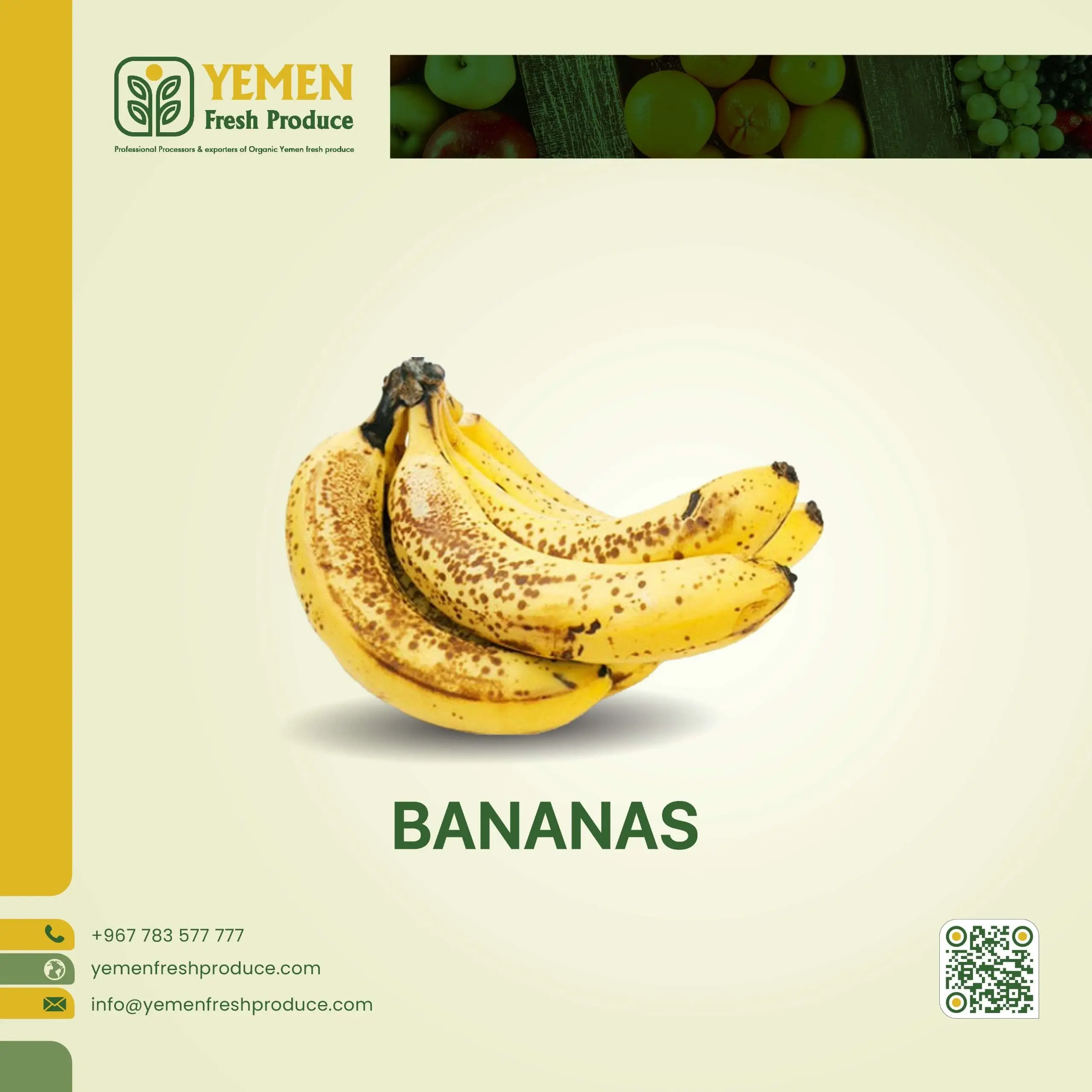
Bananas
Bananas are beloved tropical fruits, and Yemeni bananas are renowned for their high quality and delicious taste. Additionally, they offer great nutritional value and are favored by consumers for their sweetness and distinctive flavor.
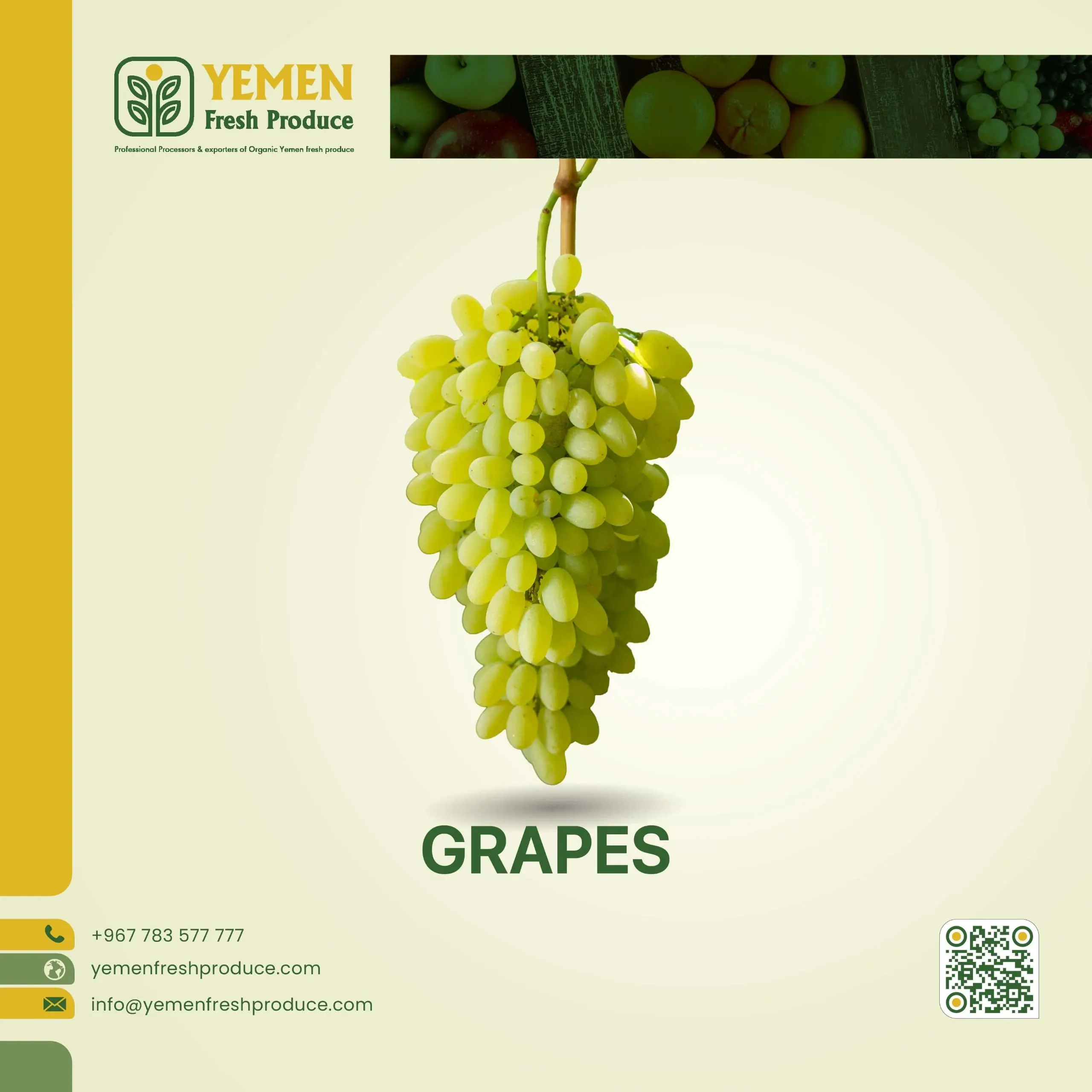
Grapes
Grape cultivation is an ancient agricultural practice closely linked to Yemen's rich heritage. The Yemeni people have known grapes since ancient times, distinguishing their cultivation from other civilizations. Traditional methods are still used today to preserve the fruit's delightful taste and flavor.
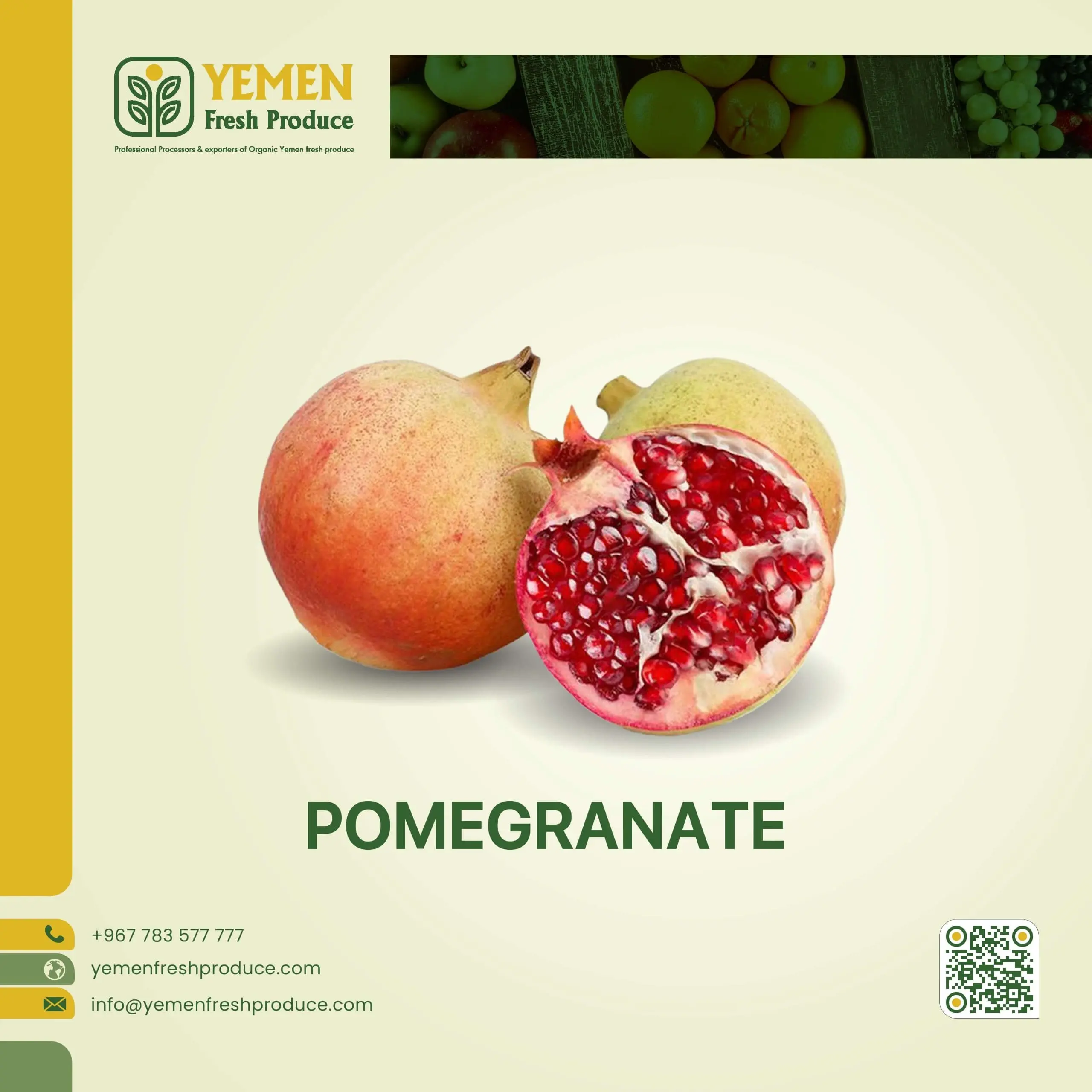
Pomegranate
Yemeni pomegranate has a distinguished reputation as one of the finest in the world, giving it a strong competitive edge in global markets compared to other varieties. This fruit has been cultivated in Yemen since ancient times, and Yemeni pomegranates are considered the best worldwide.

Sweet melon
Sweet melon is a wonderful summer fruit packed with vitamins and minerals, making it ideal for maintaining health and vitality. Yemeni sweet melons are known for their sweet taste and aromatic flavor, combining deliciousness with health benefits.
